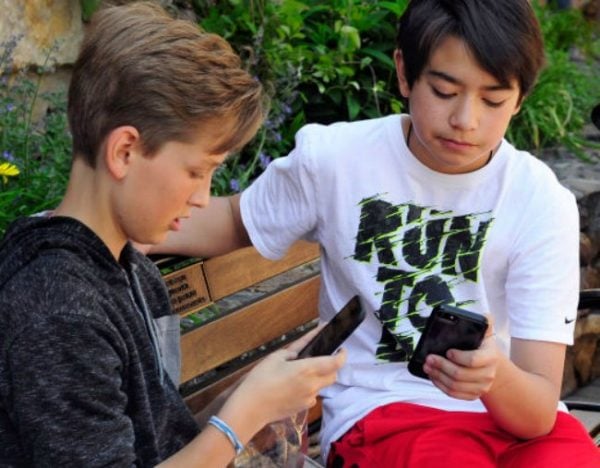In an era where we all love to blame someone or something for our problems, the recent outrage directed at Facebook’s new Messenger Kids app has created a new wave of “social media is destroying young lives” stories.
But here’s a newsflash – it’s not Messenger Kids or social media in general that’s the problem. It’s the fact that parents don’t know how to help their kids manage their online interactions.
Alarmingly, a recent Australian study reported that 60 per cent of parents do not monitor the online activities of their children at all, and those that do generally rely on “set-and-forget” methods like blocking that has been proven time and again not to be effective.
So what exactly is Messenger Kids and why all the fuss?
LISTEN: Mia Freedman, Holly Wainwright and Jessie Stephens have a big problem with the Messenger Kids app. They discuss, on Mamamia Out Loud.
Facebook has only just launched the Messenger Kids app in the US, so it’s a good opportunity for parents in Australia to do their research and check out what early users have to say before it lands here.
Messenger Kids is targeting the under-13s who are too young to set up their own Facebook account. After downloading the app parents create a profile for their child, login with their existing Facebook credentials and then can approve or request any contact their child wants to add to their account.


